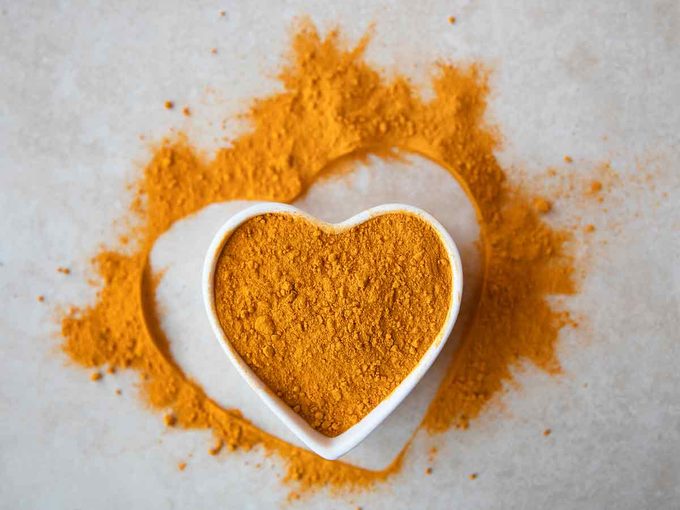The One Ingredient You Should Never Barbecue Meat or Fish Without
Turmeric is the superhero spice that’s popping up on trendy menus everywhere – golden latte, anyone? But its real secret power is that it cuts the production of cancer-causing chemicals when barbecuing. Our resident nutritionist dishes on its benefits.

Here’s what you may already know about turmeric: It’s a popular root in curries and has gained significant claims to fame as the shining star in a hot elixir known as the “golden milk latte.” Its glowing yellow-orange colour enhances any dish and potentially stains your blender, counter, hands and clothing (all washable, except for your white T-shirt). (And check out turmeric’s beauty benefits!)
Here’s what you may not know: As part of the same family of healing roots as ginger, turmeric is coveted for its phytonutrient curcumin, a potent anti-inflammatory, which has been shown to be just as effective as—and in some cases, more effective than—non-steroidal anti-inflammatories (NSAIDs). FYI, you’d have to take it in supplement form to reap those benefits.
But the best-kept secret of this culinary wonder is that it will make your barbecued food healthier! Truth: turmeric has the ability to offset some of the negative health effects of high-heat cooking.
Sorry to be your barbecue buzz kill, but grilling meats creates heterocyclic aromatic amines (HAAs), a group of chemicals that forms with high-heat cooking of animal proteins and is associated with an increased risk of colorectal cancer. However, early research shows that marinating your meat or fish in a sauce that includes turmeric can help reduce the production of HAAs when grilling. (Also, see all the grilling mistakes that could make you sick.)
But wait, that’s not all: Curcumin has been shown to be beneficial in protecting the prostate from cancer, reducing symptoms of depression, lowering fasting blood sugar levels and reducing joint pain. With thousands of studies, the list of benefits could go on and on.
How to use it:
Adding turmeric to your grilling marinades or even your homemade barbecue sauce is a great way to offset some of the negative effects of grilling. Of course, not charring your meat is also a great first step! Turmeric won’t undo subpar grilling skills—yes, I’m throwing that down.
Adding turmeric, freshly grated or dried, to the pan with your cooking oil will help keep the oil more stable, with the added benefit of adding flavour to your food. If you’re looking for a refreshing drink, juicing turmeric root, along with orange and ginger, and pouring it over ice is an amazing summer refresher.
Turmeric has a strong taste, so pace yourself. Start with half a teaspoon of dried turmeric or two teaspoons of fresh turmeric and taste as you go. How much should you use? As much as you find delicious. (See how much turmeric you should have in one day.) The beautiful thing about using therapeutic foods in their whole form is that, in most cases, your taste buds will tell you when you’ve had enough.
Try It In:
- Brazilian Barbecue Chicken
- Planked Shrimp with Smoky Avocado, Peach and Tomato Salsa
- BBQ Pineapple-Coconut Kebab
Meghan Telpner is a nutritionist and author. For her on Twitter @meghantelpner




